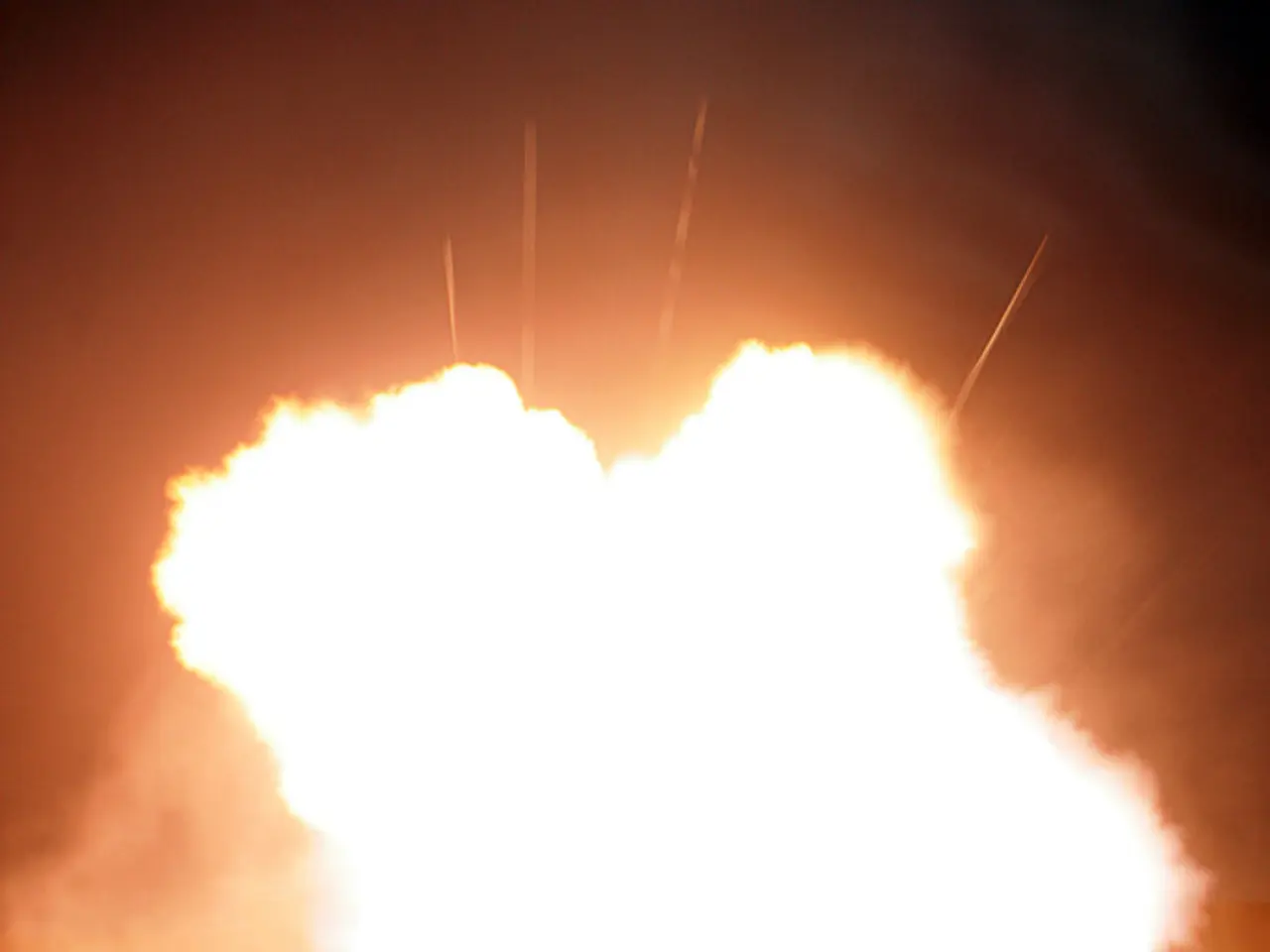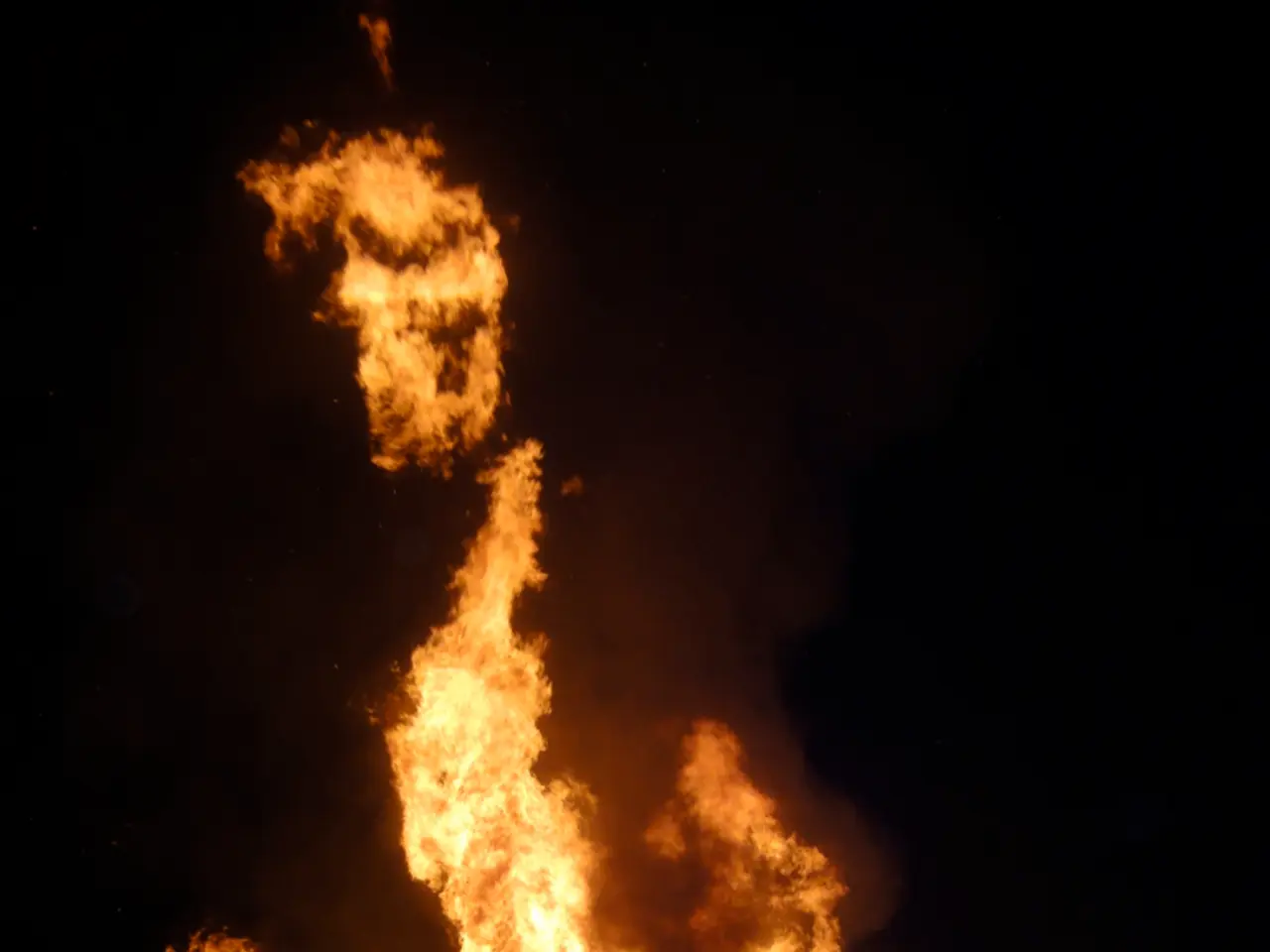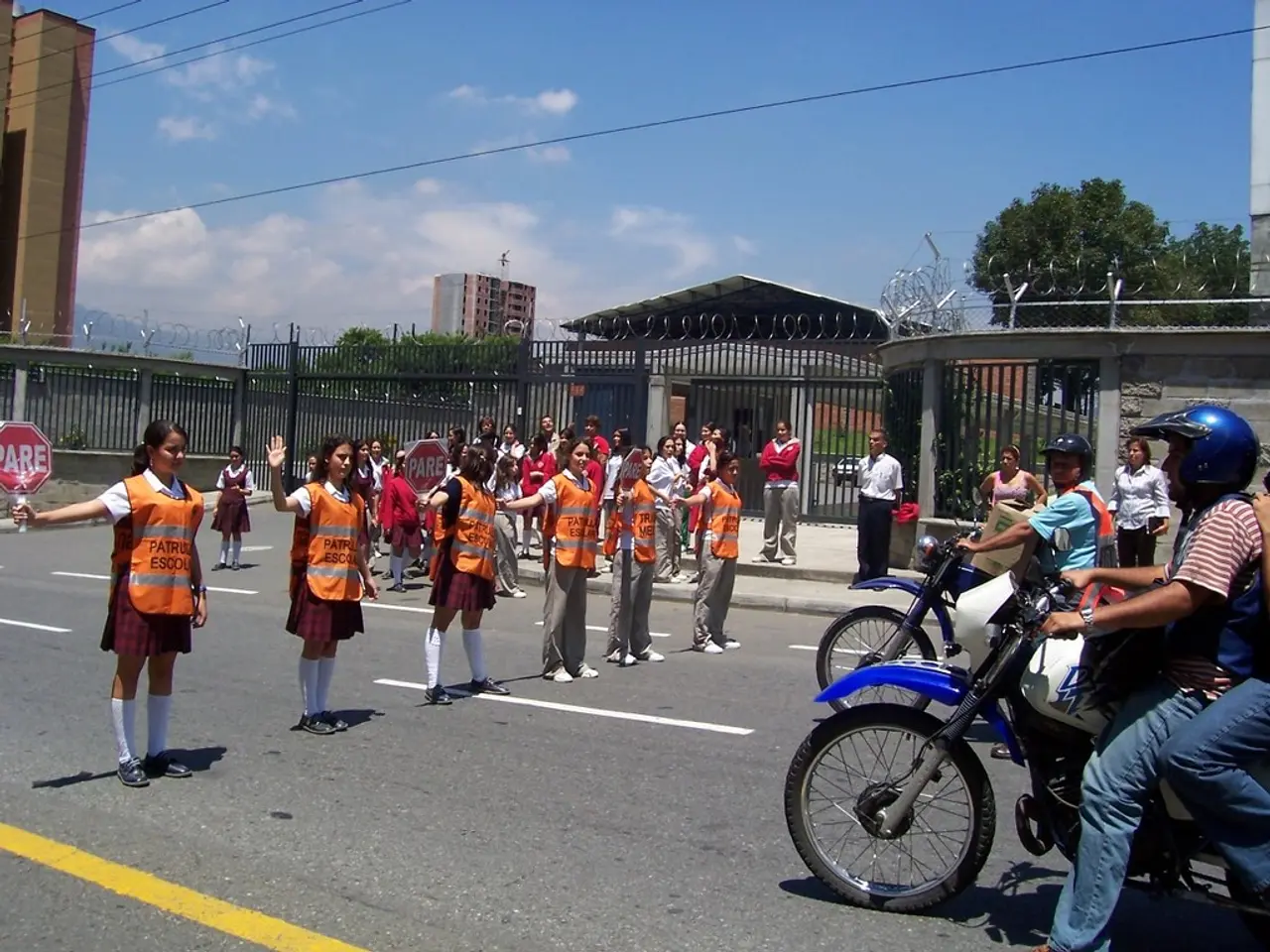Firefighter Championship Controversy: Association Maintaining Distance
In the ongoing German Firefighting Championships in Torgau, northern Saxony, the opening ceremony was overshadowed by a scandal. The Leipziger Volkszeitung and the Sächsische Zeitung previously reported on the incident, which involved the controversial first stanza of the German national anthem being played.
The first stanza, known as the "Deutschlandlied," has a complex history. Written by August Heinrich Hoffmann von Fallersleben in 1841 on Heligoland, the anthem was initially intended to emphasize unity among culturally German regions. However, during the Nazi era, the lines "Deutschland, Deutschland über alles, über alles in der Welt" gained connotations of German expansionism and world dominance, and were interpreted as aggressive nationalism.
After World War II, the stanza was banned for a period due to its associations with Nazi propaganda. Following Germany’s division, the "Deutschlandlied" was restored in 1951 by West Germany but officially limited to the third stanza, which focuses on unity, justice, and freedom.
The controversy around the first stanza still sparks debate when it appears in public events. In this instance, its use at the Firefighting Championships prompted criticism due to the stanza's historical associations with nationalism and Nazi symbolism.
In response to the incident, Hermann Schreck, vice-president of the German Firefighting Association, has distanced the association from the controversy. The responsible person for the incident has been relieved of their honorary positions in the association with immediate effect.
The German Firefighting Association stands for democratic values, and ideologies that do not align with the free and democratic basic order have no place among them. Firefighters and the association alike uphold these values.
Despite the controversy, more than 600 firefighters are currently competing in the German Firefighting Championships in Torgau. The competitions began on Thursday and include various disciplines, such as a 100-meter obstacle run and a "wet fire attack." The top three women's and men's teams from the German Firefighting Championships will qualify for the international competitions of the World Firefighting Association.
It is worth noting that only the third stanza, with the words "Unity and justice and freedom," is considered the national anthem today, while the other stanzas are not banned. The association has made it clear that it will uphold democratic values and distance itself from any incidents that may evoke nationalist sentiments.
[1] Source: German History in Documents and Images, "Deutschlandlied" (1841) and its history. Accessed on 15th May 2023. https://ghdi.ghi-dc.org/sub_image.cfm?file=/archiv/deutschland/deutschlandlied/deutschlandlied.pdf
Sports analysts debate the appropriateness of playing the controversial first stanza of the German national anthem, the "Deutschlandlied," in public events due to its historical associations with nationalism and Nazi symbolism. The German Firefighting Association, which values democratic principles, has distanced itself from the controversy and relieved the responsible person of their honorary positions.







